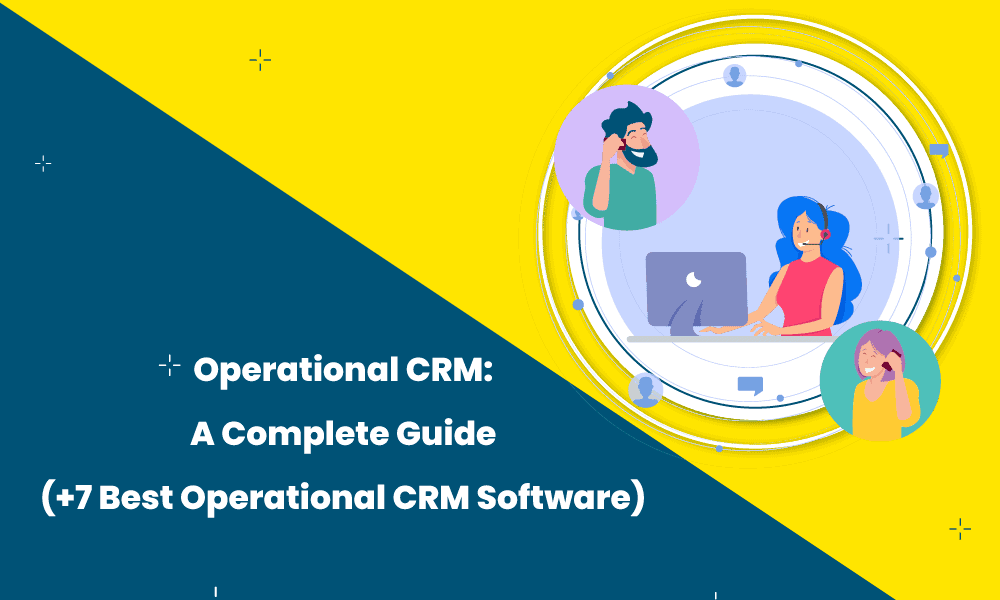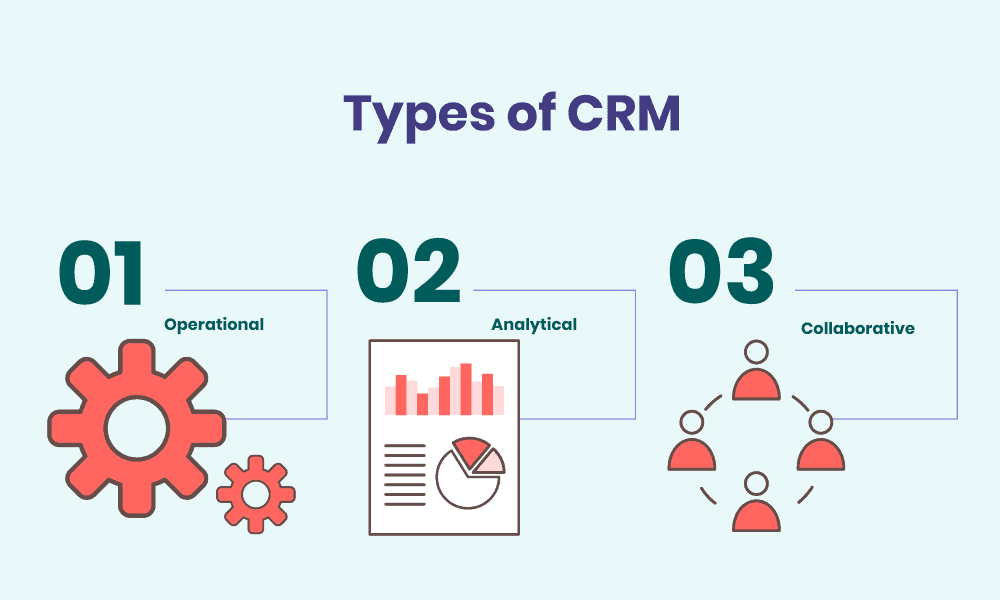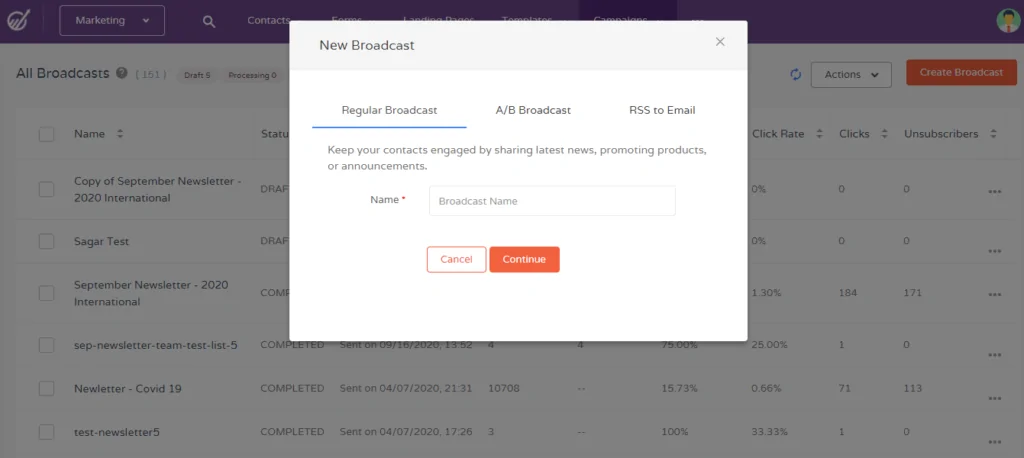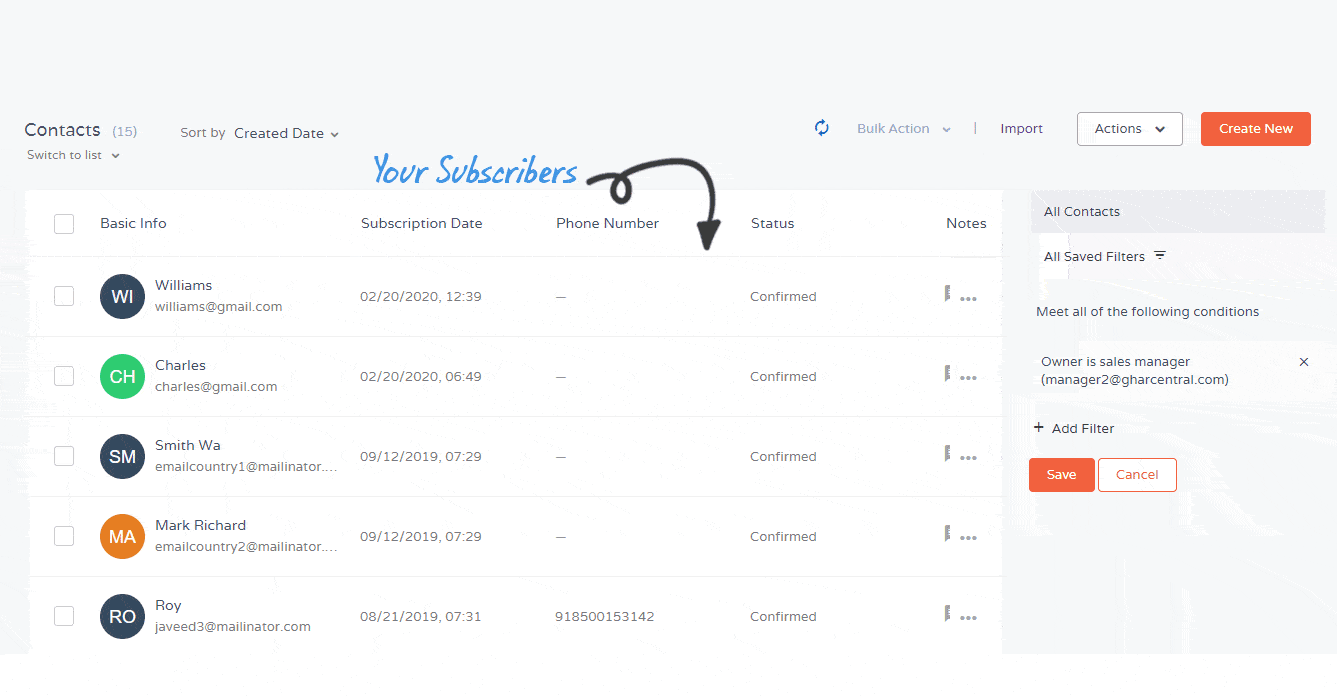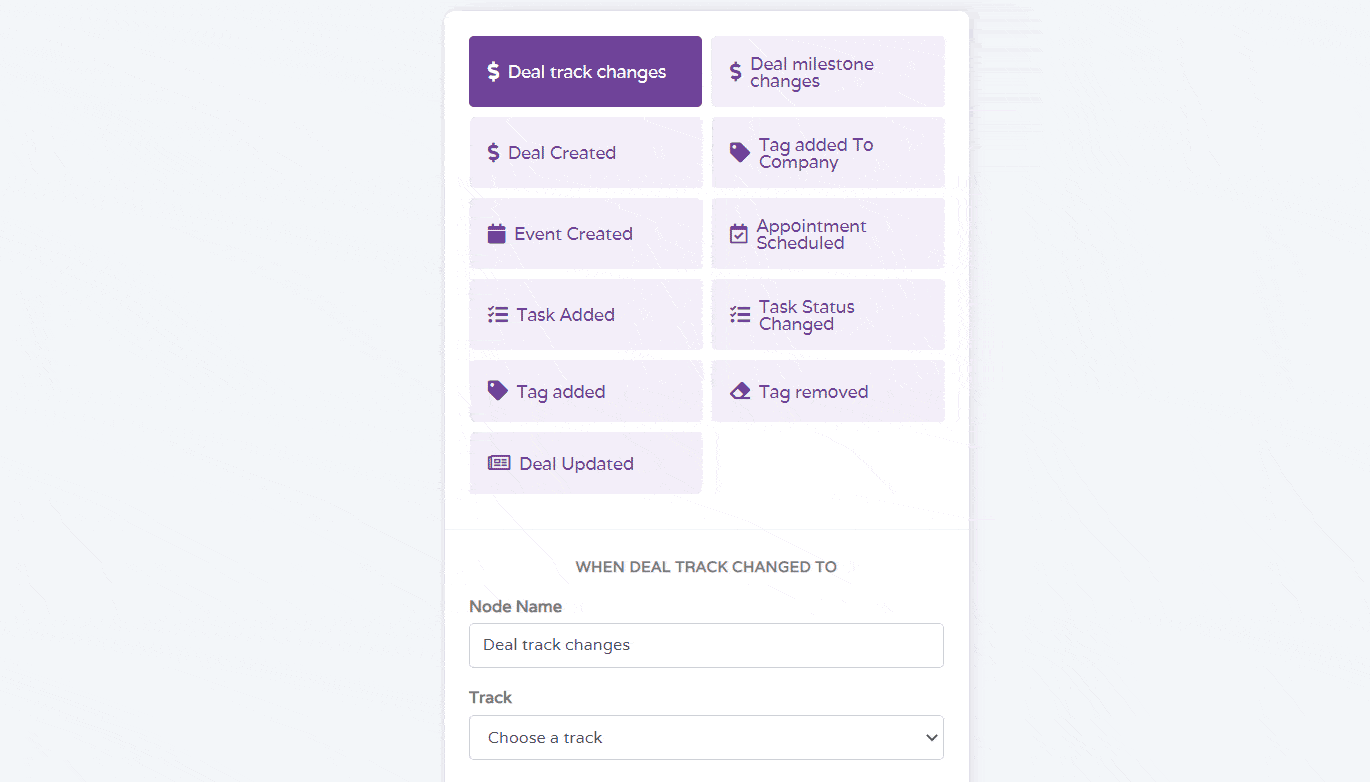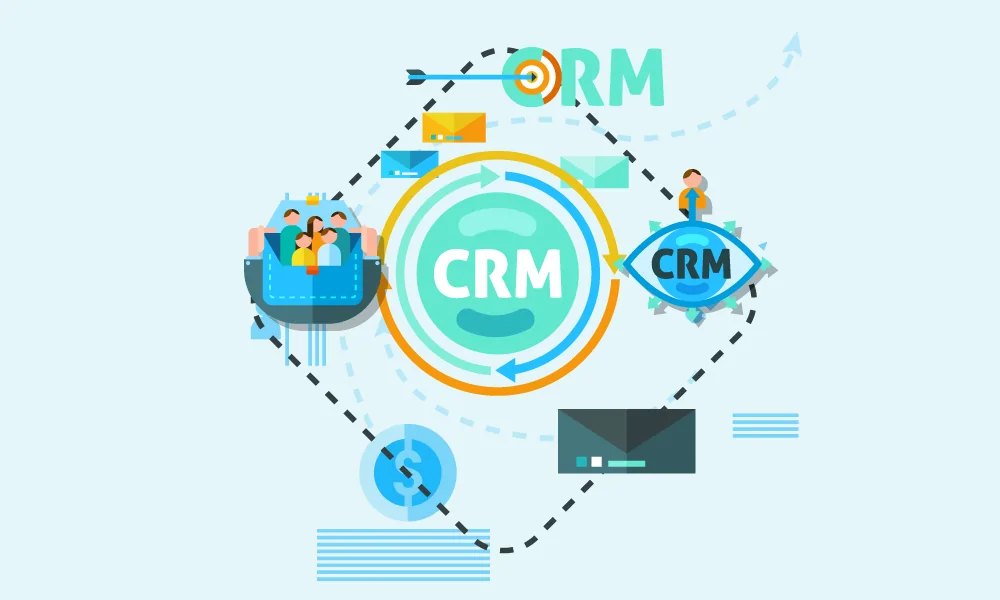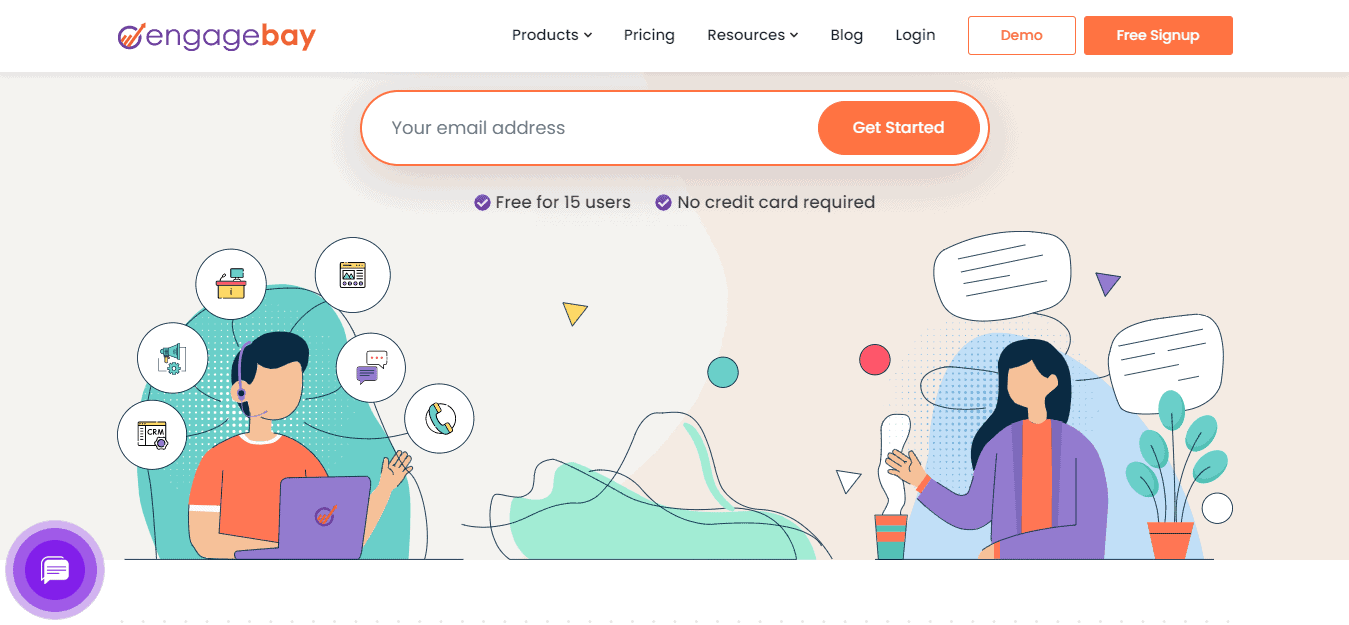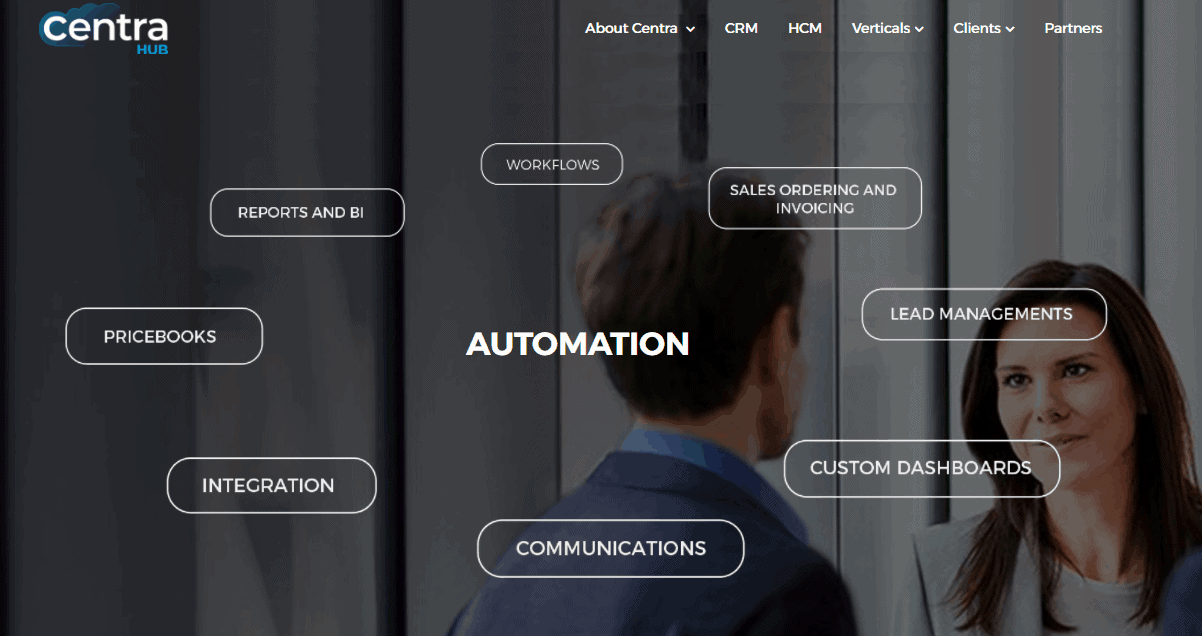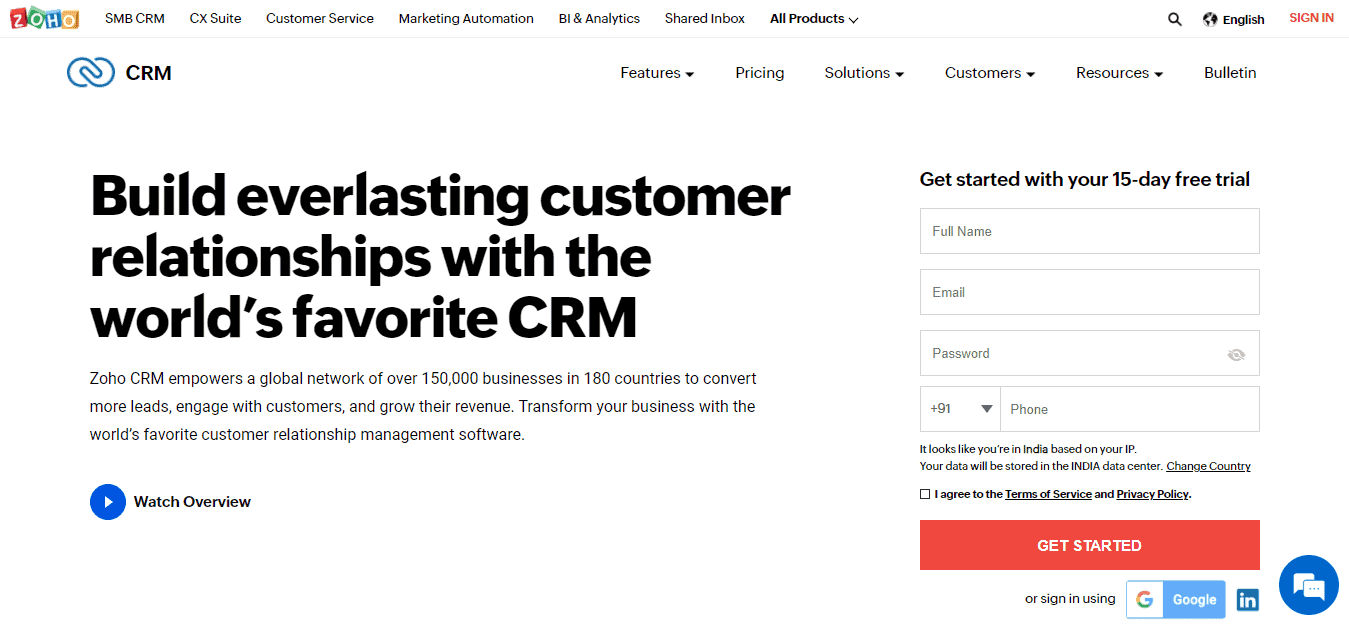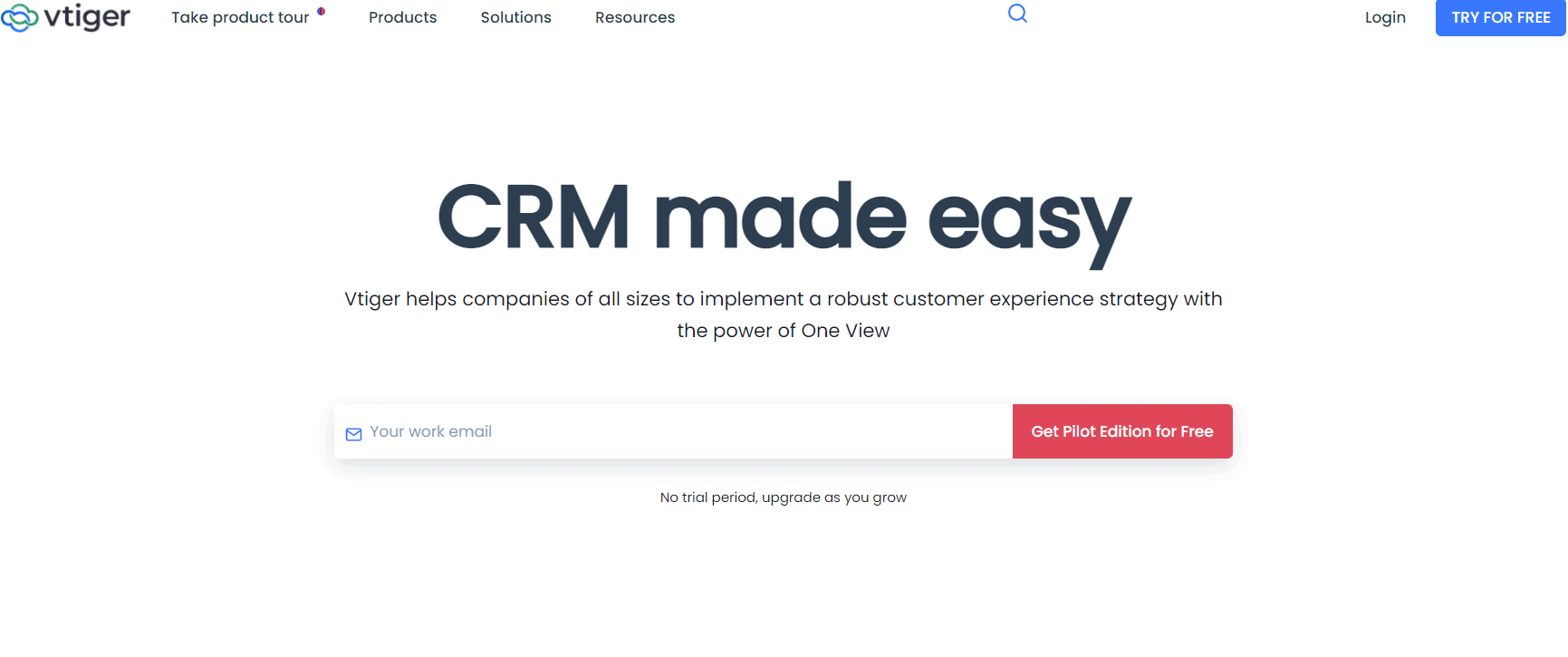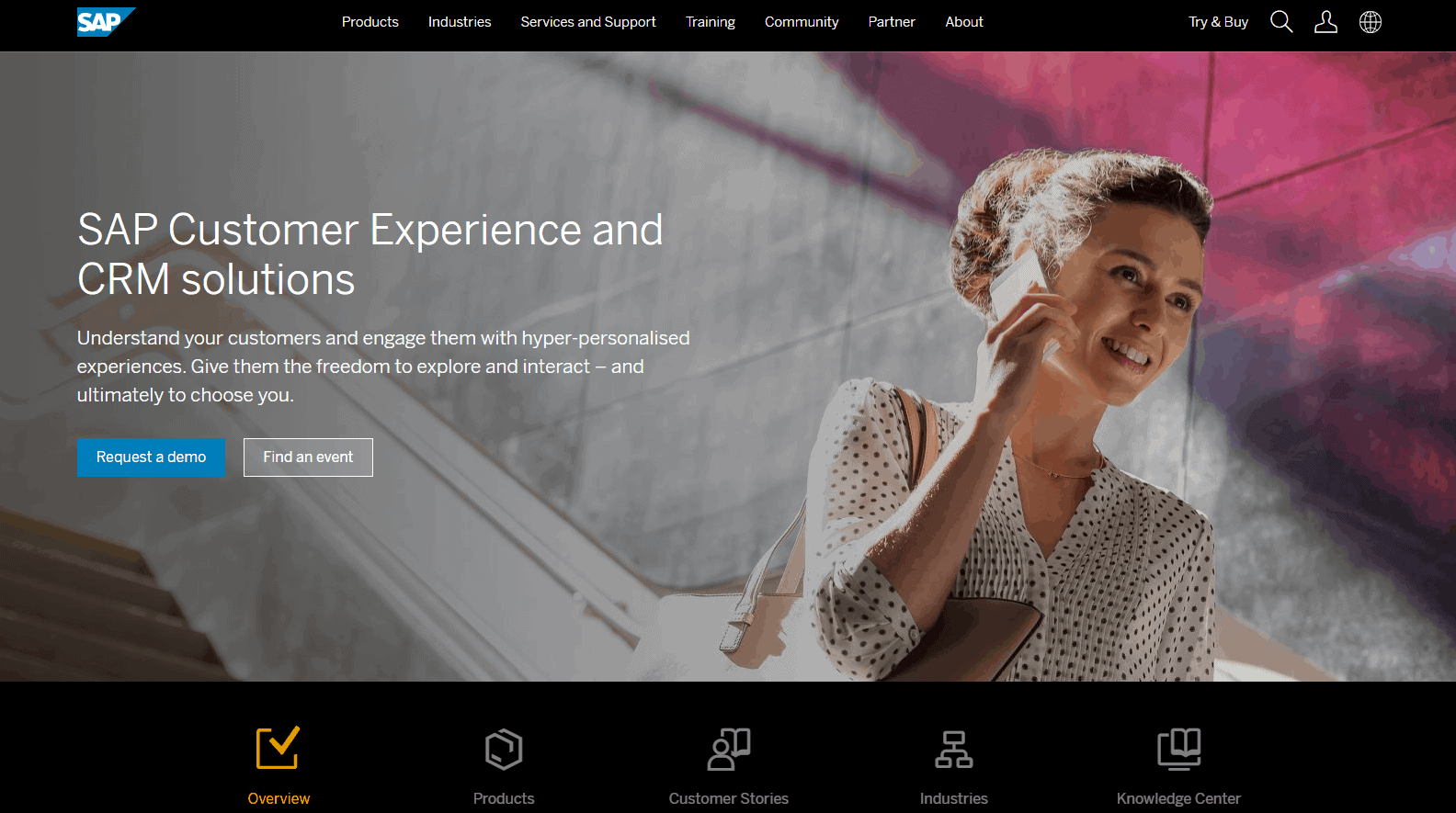All businesses need a variety of tools and strategies to scale sustainably.
You need analytics to comb through your data and derive insightful metrics. Your teams should also be able to collaborate effectively.
Then there’s the ‘operational’ side of the business. How do you operate your business in such a way that you can always bring in new customers while also retaining old ones?
By using operational CRM software. In this blog post, we’ll show you:
- How an operational CRM solution works
- The advantages of using operational CRM software
- 7 of the best operational CRM systems in the market today
Let’s dive in!
Table of Contents
What is Operational CRM?
Before we start discussing operational CRM, it is important we first understand what CRM software is.
Customer Relationship Management or CRM software helps an organization get closer to its targeted market. The organization can better its relationship with its prospects and customers by using CRM’s processes and technologies, which combine the multi-faceted working of an organization.
CRMs organize data from customer support, sales and marketing, and tech support. Later, this data can be used to formulate and monitor strategies.
Here’s a great video for you:
More than 90% of all companies with an employee scale greater than 10 people use CRM software. According to a Thomson data report, CRMs are slated to become the top type of software products.
There are 3 major kinds of CRM software – Analytical, Collaborative, and Operational.
Analytical CRM splices the data that you have and derives meaningful information from it. Decision-makers use this analysis to make better decisions for customer retention, acquisition, etc. Analytical CRM tools work behind the scenes and drive the organization forward.
As the name suggests, Collaborative CRM is used to improve inter-management and collaboration levels among marketing, sales, and customer service teams.
This tool helps in assigning tasks, keeping tabs on who is doing what, and allows you to share contact and lead information among other necessary data between team members.
Finally, here’s the operational CRM definition:
Operational CRM focuses on streamlining customer engagement by unifying marketing, sales, and customer service. This CRM takes care of all the “operations” — including the acquisition and retention of customers.
Also read: The Types of CRM Systems – A Comprehensive Guide
How an Operational CRM Software Works
An operational CRM system helps organizations interact with their customers by connecting and supporting sales, marketing, and customer service functions. Call centers and data aggregation centers use this type of CRM widely.
It is estimated that 90% of organizations with more than 11 employees use this form of CRM.
Marketing Campaigns
An operational CRM software kicks in the moment you start your marketing campaigns.
You can fill in your CRM database with the contacts that you get in webinars, events, direct marketing campaigns, contests, SMS-based campaigns, etc.
You can plan, automate and execute successful marketing campaigns to drive revenue growth with EngageBay CRM.
This data can support your existing email campaigns. In this context, we’d suggest you consolidate your existing CRM platform with your ongoing email blasts to achieve better ROIs and consistency.
Some studies have shown that email campaigns powered by CRM can deliver a whopping 4,400% ROI.
Sales Activities
Your sales activities and CRM system can work together to produce high-value results. Let’s take the example of a salesman pitching to sell a high-end computer to a prospect.
The salesman received all the necessary contact information through marketing campaigns and various other sources mentioned in the previous section.
Now they enter the prospect’s name in the CRM to find whether the latter is an existing customer. If the answer is yes, they try to upsell another machine to the same customer to get a higher price, and hence, value. Of course, this salesperson first tries to determine the requirements of the customer. An operational CRM software is crucial here.
With the existing shopping behavior and expense pattern available, a good sales rep can easily process the present condition of a consumer.
If this prospect is entirely new, the sales rep would try to sell other products as well (cross-selling). It could be a printer, an audio system, or extra storage.
All the data is fed in the company CRM to keep an updated record of this new customer.
In this context, it is important to have a robust CRM in place. According to a HubSpot study, 23% of respondents said manual data entry is the biggest pain point while using an outdated CRM.
Fully integrated CRMs would capture all your leads from various social media platforms and websites automatically. Depending on their activity, their interests would be analyzed and suggested as “hot leads”.
Also Read: Ace the Sales Process: 9 Strategies Nobody Ever Follows
Support and Service
After a sale, the salespeople hand over the customers to the service and support staff. At the time of the handover, they document everything the customer needs. Since in this case, the customer is buying a computer, the salesperson records all the requirements of the customer, including model, type, configuration, memory, accessories, etc.
This document must record all the information faithfully. Anything missed will lead to a loss in revenue and reputation.
Until a few years ago, support and service staff did not have access to the same information that sales and marketing had. However, in recent years, all customer-facing departments have got access to customer data.
Today, there is seamless communication between sales, marketing, and customer service. If you have a help desk software, you can integrate it into your current CRM platform for smooth interaction between sales and service.
Sales Force Automation
Great CRM systems can identify high-value leads, automate initial contacts, and eventually, set up sales meetings.
With a robust and intuitive CRM system in place, you don’t really need bulky phone books and diaries. Your sales process can be automated with just one click on your mobile device or computer.
You can track sales performance and past sales data, detect cross- and up-selling opportunities, and much more with your CRM database.
With the recurring and mundane tasks of data entry or follow-ups automated, your sales teams get to spend more time on productive tasks.
Automate tasks, increase productivity, boost sales, and grow revenue with EngageBay CRM
Moreover, you can trust your operational CRM software to be smarter than just a ‘round robin’ arrangement when it comes to sorting leads.
A study by Aberdeen Research Group indicates that organizations that used automated sales processes generated 217% more ROI than those who don’t.
The same study shows that further investment in this type of CRM may generate 52% more proposals.
Read also: 15 Email CRM Software for Pro-Level Marketing in 2024
Using CRM for Marketing Automation
Your operational CRM system can help your marketing people analyze rough data and come up with helpful information. This information enables marketing teams to create stories around their campaigns and entice customers to buy your products and services.
Marketing automation also enables easy customer interactions.
79% of the CMOs surveyed said the top consideration for implementing marketing automation was to augment revenue.
EngageBay’s marketing automation helps small businesses automate marketing and sales workflows to generate leads, close deals, and grow revenue faster
Support Automation
You may want to automate your support function as well. Let your CRM enable customers to solve their problems themselves, raise tickets, and resolve queries quickly. This platform can also let existing customers update their payment information, generate invoices, and even answer some survey questions.
You can offer the perfect customer support system with operational CRM tools like autoresponders, live chat, help desk, ticketing systems, priority checkers, support community, and more.
An Example of How an Operational CRM Software Works
Let’s take the example of car company A to understand how it deploys operational CRM.
When A participates in an auto expo, it runs a small touch-my-car experiential campaign at its stall. All those who want to experience what A has to offer, need to fill in a form.
The information in all the forms is fed to a central database that splices applicants in terms of age, marital status, gender, and occupation.
Based on this information, A starts an automated marketing campaign directed toward these prospects. Various email marketing tools including segmentation, sales force automation, campaign management, lead scoring, and strategies including email personalization come together to try and entice these prospects.
Based on the response, the prospect is handed over to the sales team. The sales team then uses operational CRM features like pipeline management, task automation, and CRM telephony to move the prospects further down the sales funnel.
Once deals are closed, the customer data is handed over to the customer service team for feedback, further queries, and more.
The marketing team too can engage users with email sequences and try to cross-sell and upsell.
Also read: Automotive CRM For Your Dealership: A Quick Guide (+ 5 Best Software)
Advantages of Using an Operational CRM Software
Let’s look at the prominent advantages of using an operation CRM for your business.
Refining Marketing Process
One of the most visible benefits of this CRM is that you can deep dive into your customer persona. With such robust CRM software, you can assign your prospects to 3 main buckets — customers who would buy, likely customers, and those who will never show up.
According to Criteo, website visitors who are retargeted are 43% more likely to convert as customers.
With the help of customized messages, you can target each of these three customer groups.
You can also identify buying trends across categories, age groups, genders, and even geographies.
Inter-Departmental Communication
It is no secret that effective inter-departmental communication enhances your company’s productivity. Operational CRM software improves inter and intra-departmental communication significantly.
When employees of the same team or department have access to the same data, they are much more likely to participate in the sales and marketing process enthusiastically.
Cross-Selling and Upselling Opportunities
If you are selling various inter-related products, then this type of CRM can offer several cross-selling and upselling opportunities.
Let us say, you are in the business of making and selling cars. John Doe comes in one day and buys one of your models. Now that John is in your database, you can send him periodic offers on car accessories, car maintenance, and even new models. This is how cross-selling and upselling works in general.
EngageBay is an excellent operational CRM platform for small businesses. EngageBay also allows easy customer interactions, engagement, and retention.
Also read: CRM in Ecommerce: The Perfect Partner for Personalization
Driving ROI
The simple reason why more and more organizations are taking to the CRM trend is that it drives up your Return on Investment. Studies have concluded that for every $1 that you invest in this CRM, you get 8x revenue.
Let’s look at those features of this tool that drive your ROI up.
- Data centralization helps in organizing all your critical information in one central place for effective use later on.
- Segmentation helps you put customers in specific buckets and makes it easy to send customized messages. You can also group your loyal customers in one place.
- Lead scoring helps you prioritize your prospects and further helps to allocate your resources. This metric answers the question: ‘Who is my most important customer?’
- Pipeline management: This is about being able to deal with various projects in a single team with limited manpower.
- Email marketing has been proven to deliver a very high ROI to marketers. Some Increasing Customer Satisfaction
A good operational management tool can drive up customer satisfaction levels. More customer satisfaction means higher customer loyalty.
Customers don’t want to repeat themselves, and they don’t want to raise the same complaints again and again. To counter that, you could always implement an omnichannel marketing plan.
90% of people who took part in this Market Leadership
One of the most obvious but least talked about benefits of using a fully equipped CRM is that you gain market leadership.
You can become a leader in not just sales or market shares, but also in areas like profitability, customer satisfaction, and even employee satisfaction.
For example, if you know which products are selling right now and can anticipate the ones that might sell in the future, you can finetune your production pipeline. With a good CRM in place, you can sell the right products in the right volumes and at the right price.
Gaining Valuable Insights
Your CRM can also become a barometer of your company’s health.
This tool can enable you to look at all the aspects of your customer-related touchpoints and find out any weak areas.
A good operational CRM software offers powerful insights and metrics to help you fine-tune your workflow. Most CRM software offer in-depth and smart dashboards to help you gauge your teams’ performance at a glance.
EngageBay has powerful dashboards with marketing, sales, and customer service metrics so that you can figure out what’s working, and what needs improvement.
7 of the Best Operational CRM Software
We have handpicked the 7 best operational CRM software for you. Let’s get started.
#1. EngageBay
This is where you get the best of all worlds with immense possibilities for automation, customization, and integration.
With EngageBay, you get a host of powerful operational CRM features, including omnichannel marketing, predictive lead scoring, sales force automation, segmentation with both static and smart lists, 360-degree customer view, help desk, live chat, and account-based marketing.
And it’s pretty affordable too. For under $80, you get unlimited contacts and 50,000 emails. But if you’re just getting started, you can choose the free plan — a perfect option for businesses just starting out.
To know more about the pricing and the respective packages, you can click here!
#2. HubSpot
HubSpot CRM software is for those companies that don’t want to spend too much time logging in their data. This customer relationship management tool centralizes all the customer and user data in one central place.
You can easily view and manage your sales pipeline by watching your lead movements there. Intuitive in design, and easy to use, HubSpot is ideal for small to medium companies (10-200 people).
This CRM can be installed on native iOS devices, Android, Windows, cloud, SaaS, and web platforms. There is a demo product available too.
HubSpot is used by more than 50,000 websites in the United States alone.
#3. Centra Hub CRM
The one thing that works for Centra Hub CRM software is customization. Plus, you can integrate this platform with sales, marketing, and service departments for superior performance.
Automate lead generation, and use this platform to nurture your leads.
Centra Hub CRM is a cloud-based platform that can work for small, medium, and large organizations.
Unlike HubSpot, this CRM doesn’t have a free product. Centra Hub’s plans start at $8.99 per user. This platform can be installed on all devices including Mac.
#4. Zoho
Zoho can work for small and large size organizations and has a complete customer lifecycle relationship management solution. You can manage sales, marketing, inventory, and other critical business operations from one central platform.
Product training is delivered by online training, documentation, in-person, and webinars.
Zoho CRM is among the largest selling product in the software market. It is estimated that the software part contributes to half the annual revenue of Zoho Corp.
Zoho has free as well as paid versions. Its paid version starts at $12 per user. This platform is supported by native iOS, Android, Windows, cloud, web, and SaaS platforms.
#5. Salesforce CRM
Salesforce operational customer relationship management tool is perhaps the largest selling software in the world.
The biggest distinguishing feature of this platform is that you don’t need to set up any infrastructure. All you need to do is open an account and log in.
Salesforce is meant for small, medium, and large companies. One of the biggest trusted partners of KFC, this platform has been around for a while. More than 150,000 companies use this tool to manage their sales daily.
There are free and paid tools for businesses. Paid plans are available from $25 per month per user.
#6. Vtiger CRM
Vtiger CRM software is a good catch for small and medium-sized organizations that have agile sales teams and are geared toward marketing ROI. If you value your customers, then Vtiger CRM is not going to disappoint you. It offers marketing, sales, and customer service automation with built-in operational CRM tools.
This CRM platform is used by over 300,000 businesses all over the world. Send automated SMS and marketing campaigns, manage your lead pipeline, spot deals, and close sales on the go. It is an excellent tool for collaboration, fixing meetings, and forecasting sales.
Vtiger has free and paid plans. If you are just starting out on CRM, start with the free plan and then graduate to the paid one that costs $10/month/user.
Vtiger supports native iOS and Android platforms, Windows, cloud, SaaS, and web platforms. It doesn’t run on Mac devices.
Read also: 24 Vtiger Alternatives: Boost Your Business Growth
#7. SAP CRM
Launched by SAP, this platform delivers marketing insights and streamlines critical business sales, customer service, and marketing processes across and beyond customer touchpoints.
SAP CRM doesn’t have a free plan, though you can try it for free. Paid plans start from $58 per month per user.
This platform can only work on cloud, SaaS, and Web platforms and is appropriate for very large business organizations.
Wrapping Up
CRM is an ever-changing field and more and more features are getting added to the standard tool. There is a wide range of options when it comes to operational CRM platforms.
Now that you know our top picks for CRM, you may be wondering which one to go for. Ideally, the choice is all yours to make!
You can call the shots depending upon your requirements and budget. However, you don’t have to call a blind shot. Most CRM solutions come with a free trial; you could sign up and try using the channel extensively throughout the trial period.
For small businesses, EngageBay is the best operational CRM software — it unifies marketing, sales, and customer service around a single view of your customer.
It has a free version with a host of tools needed for fledgling businesses to start from the ground up. Even the paid versions are highly affordable — you can subscribe to one for less than a dollar a day!
Sign up now and see why so many users are loving it!

